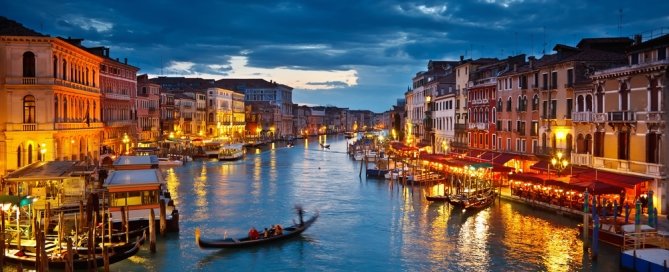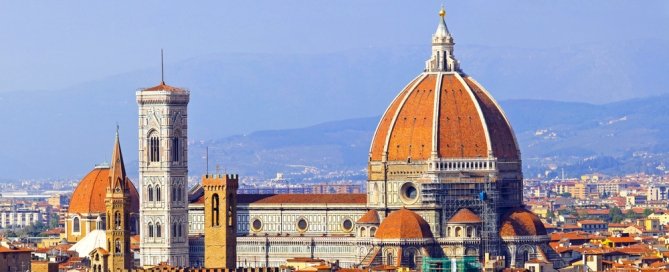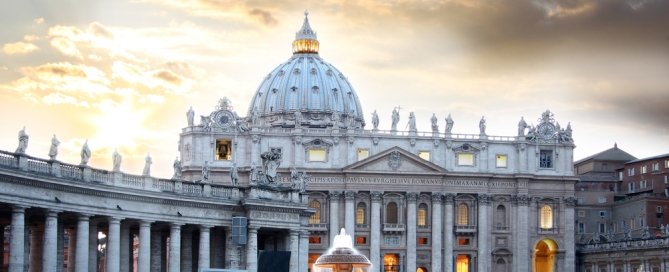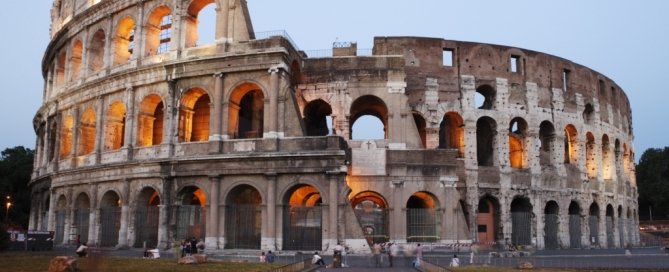Guide to Italy
Quick Facts
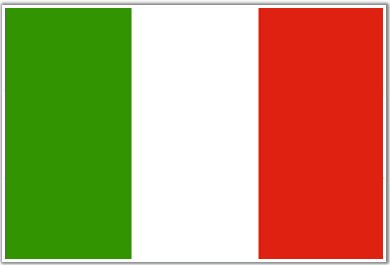
Population: 61 million
Major Language: Italian
Currency: Euro
Calling Code: +39
By the time it became a nation-state in 1861, Italy had already bequeathed its legacy to western civilization. Along the Mediterranean Sea, Ancient Rome developed from an agricultural community into an empire that would extend through Europe, reaching Africa and the Middle East. Later, the Renaissance would flourish in the Italian city of Florence, provoking a historical breakthrough in the arts and sciences. To this day, remnants of Italy's glorious times can be found in modern architecture, philosophy, law, and government.
The strife and internal divisions that characterized Italy after the fall of the Roman empire came to an end when King Victor Emmanuel II unified the territories of the Italian peninsula into one kingdom. The King instituted a parliamentary system, and Italy became a colonial power soon thereafter. When Benito Mussolini came to power in the early 1920s and ruled as a Fascist dictator, Italy found itself an ally of Nazi Germany in World War II. After its defeat, a democratic republic emerged to replace the monarchy, leading to a period of economic revival marked by entrance into NATO and the European Economic Community. Since then, Italy has become increasingly globalised, joining the Economic and Monetary Union in 1999.
Capital City: The legendary city of Remus and Romulus, the Eternal City, preserves the grandeur of its imperial past, the beauty of its Hellenistic ancestors and the style of dolce vita immortalized in Federico Fellini's 1960 film. Entering Rome, a city that somehow resists the passage of time, is like entering an open air museum adorned with Imperial Forums, the Pantheon and the timeless Colosseum. The spirit of the city, however, is best conveyed by its people. Loud, warm, genuinely happy, Romans like to say that there are two things in life that should never be rushed: death and meals. Given its splendor and the charm of its people, it is thus no wonder that Rome consistently ranks high in lists of most-visited cities in the world.
Government: Italy is a republic, with President Giorgio Napolitano acting as chief of state and Prime Minister Silvio Berlusconi as head of government. There is a Council of Ministers nominated by the president as well as a bicameral Parlamento consisting of the Senate and the Chamber of Deputies. Recently, the Italian government has been plagued by controversy and scandal, involving multiple corruption charges against Berlusconi.
Culture: We must thank the Belpaese (beautiful country) for its opera, its Renaissance art, the iconic gelato, pizza, espresso, lasagna...From world-famous art and gastronomy to the fashion extravaganza of the Milan catwalks, from its UNESCO World-Heritage Sites to its cinema, culture in all its forms is Italy's most precious treasure.
Italian Media
 |
|
Study in Italy
 |
Coming Soon |


